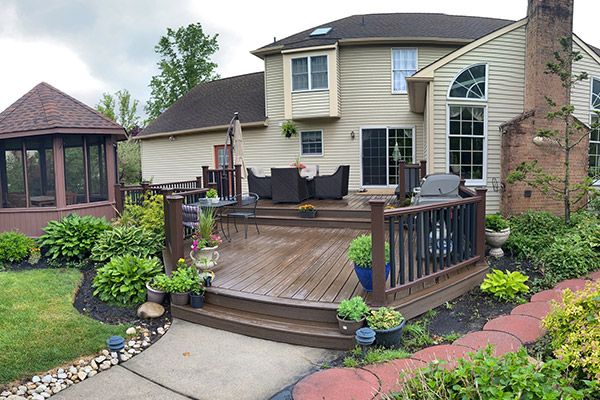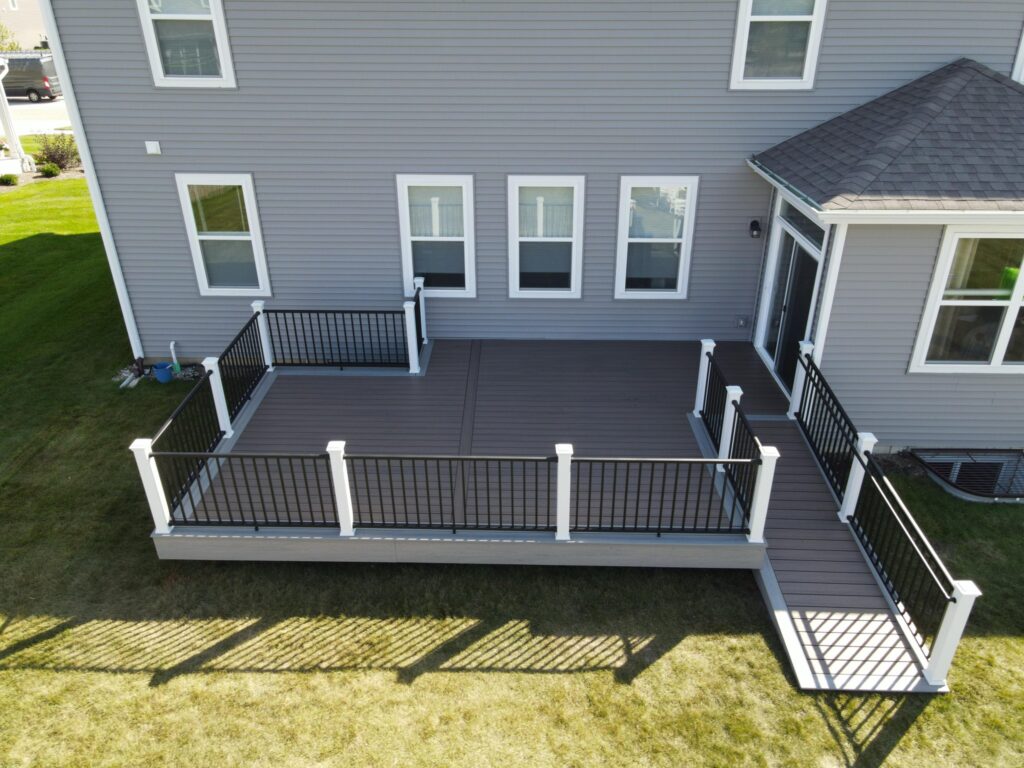Exploring Various Kinds and Advantages of Deck: A Comprehensive Guide
The outside deck is greater than simply an expansion of one's living area; it's a testament to individual style, a place for social gatherings, and a sanctuary to relax. The option of outdoor decking material dramatically influences these facets, with alternatives ranging from the timeless allure of timber to the functionality of composite, and the resilience of aluminum. Comprehending the nuances of these products is vital, so let's start our expedition, one deck type at a time.
Recognizing the Essentials of Decking Material
Outdoor decking product functions as the backbone of any type of deck project, determining the total appearances, durability, and capability of the end product. The marketplace supplies a large series of products, each with unique attributes suited to different style choices and environmental problems. The selection includes all-natural wood, composite, plastic, aluminium, and even concrete. Wood, being the standard selection, gives a classic, traditional allure. Composite, a blend of timber and plastic, supplies wood-like visual appeals with less upkeep. Plastic and aluminium supply modern-day, minimalistic choices, while concrete is favored for its unrivaled toughness. The choice of material substantially affects the deck's lifespan, upkeep demands, and resistance to components. Therefore, comprehending the essentials of outdoor decking material is important for an effective deck project.
Benefits and Downsides of Timber Decks
In reviewing deck types, recognizing the pros and disadvantages of wood decks comes to be vital. This involves considering elements such as the kind of timber picked and its influence on the deck's efficiency. The succeeding discussion will check out these points carefully to give a thorough view of the benefits and disadvantages linked with wood decks.

Timber Deck: Pros & Disadvantages
The beauty of timber decks can not be overstated. They exhibit an ageless appeal and warm visual that many homeowners find alluring. This natural product is functional, enabling a range of style opportunities, and can provide a superb return on financial investment.
Nonetheless, timber decks additionally come with particular disadvantages. Its durability can be much less than other outdoor decking materials, specifically if not correctly cared for.
Choosing Your Wood Type

Exploring the Advantages of Compound Decking
Transforming focus to composite decking, it supplies unique advantages. Its resilience outmatches traditional wood in rough climate condition, lowering the need for regular maintenance. In addition, it provides a pleasing aesthetic appeal with variable layout choices.
Composite Decking Durability Conveniences
Despite the myriad of decking choices readily available in the market, composite outdoor decking stands out for its sturdiness. This kind of outdoor decking, made from a mix of timber and plastic, provides a resilient, long-lasting system immune to components that usually deteriorate other products (Deck Builders Near Me). It does not warp, splinter, or split, making certain a consistently smooth surface area for many years. Additionally, it's immune to damage from bugs such as termites, adding to its durability. The fundamental resistance to fading, staining, and scratching is an additional noteworthy benefit. This makes it a perfect selection for high-traffic areas or investigate this site outside areas exposed to harsh weather. In recap, the sturdiness benefits of composite outdoor decking supply a sustainable, economical service for outdoor space.
Upkeep of Composite Decks
Along with resilience, composite outdoor decking flaunts a significant benefit in terms of maintenance. Unlike traditional wood decks, composite decks are not prone to rot, warp, or insect damages, thus significantly lowering the need for normal fixings and substitutes. They additionally call for no sanding, staining, or painting, making them a time-saving option for house owners. Cleansing a composite deck is an uncomplicated task, often just calling for a move or a mild laundry with a mild soap and water. The low-maintenance nature of composite decks not only supplies simplicity of maintenance yet likewise contributes to their long-term cost-effectiveness. This sensible benefit, integrated with the material's intrinsic resistance to weathering and degeneration, makes composite decking a favored choice for lots of individuals seeking a convenient and resilient decking remedy.
Visual Charm and Variability

The Increasing Popularity of Aluminum Decks: Why Pick Them?
As the need for low-maintenance and long lasting outdoor decking increases, light weight aluminum decks are significantly coming to be the go-to alternative for several home owners and home builders. These decks, made from a lightweight yet tough metal, offer several benefits over conventional wood or composite decks. To start, aluminum is normally immune to the components, implying it won't warp, crack, or fade over time. This makes it a cost-effective choice in the long run. Furthermore, its non-porous surface stops the growth of fungi, molds, or pests, ensuring a healthy and tidy outdoor area. Aluminum decks are also eco-friendly, as they are commonly made from recycled materials and can be recycled once again at the end of their lifespan. Their modern and try these out smooth visual charm fits well into contemporary home layouts.
Upkeep Tips for Different Decking Products
Natural wood decks need routine discoloring or securing to prevent weather damages, while composite decks need periodic cleansing with soap and water to remove discolorations and particles. Comprehending these upkeep requires is vital for deck proprietors to maximize their investment and maintain their decks looking their best for years to come.
When Choosing Your Deck Kind, variables to Take Into Consideration.
What factors should one consider when selecting the kind of deck to set up? The first facet to take a look at is the environment. Certain materials are much more sturdy in specific climate condition. For instance, composite decks withstand moisture well, making them ideal for stormy or humid areas. The homeowner's way of living should additionally affect the choice. If they delight in outside enjoyable, they might go with a large, sturdy wood deck. Expense is another substantial element. While some might desire a lavish, unique wood deck, spending plan restrictions could demand a more cost-effective choice like pressure-treated timber. Upkeep requirements require to be assessed. Decks requiring much less maintenance, like plastic, can be advantageous for hectic home owners. Therefore, environment, expense, way of living, and maintenance are essential considerations in deck option.
Verdict
In verdict, decking materials significantly vary, each offering distinct benefits that accommodate different house owner demands. Timber decks charm with all-natural appeal, while composite and light weight aluminum ranges supply durability and low maintenance. Deck Builders Near Me. The finest choice depends on private way of life, climate, and budget. Consequently, prior to committing to a particular deck kind, homeowners must carefully consider the benefits, disadvantages, and maintenance needs of each material.
In examining deck kinds, comprehending the pros and disadvantages of wood decks ends up being important.In spite of the plethora of decking alternatives readily available in the market, composite decking stands out for its longevity. Unlike traditional wood decks, composite decks are not susceptible to rot, warp, or insect about his damages, therefore dramatically minimizing the need for regular fixings and replacements. These decks, made from a lightweight yet sturdy metal, offer a number of benefits over traditional wood or composite decks. Natural timber decks need normal staining or sealing to avoid weather condition damage, while composite decks require routine cleaning with soap and water to remove discolorations and debris.